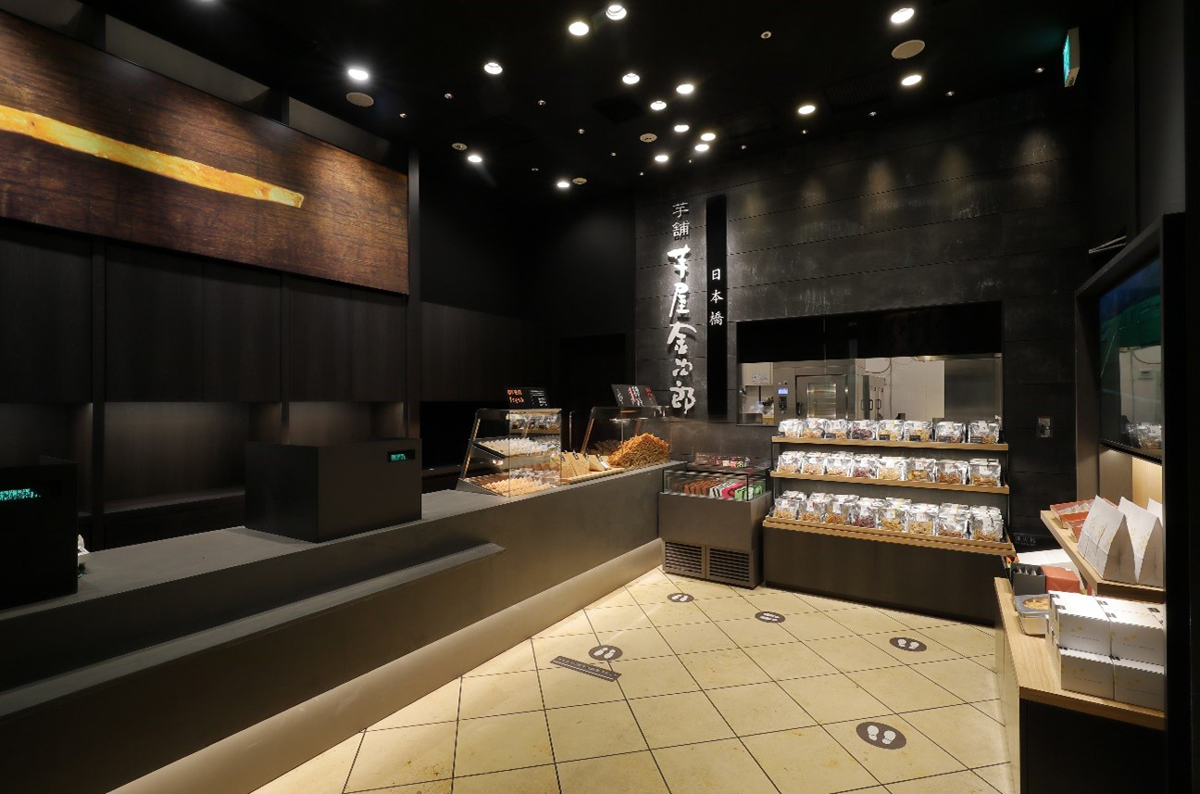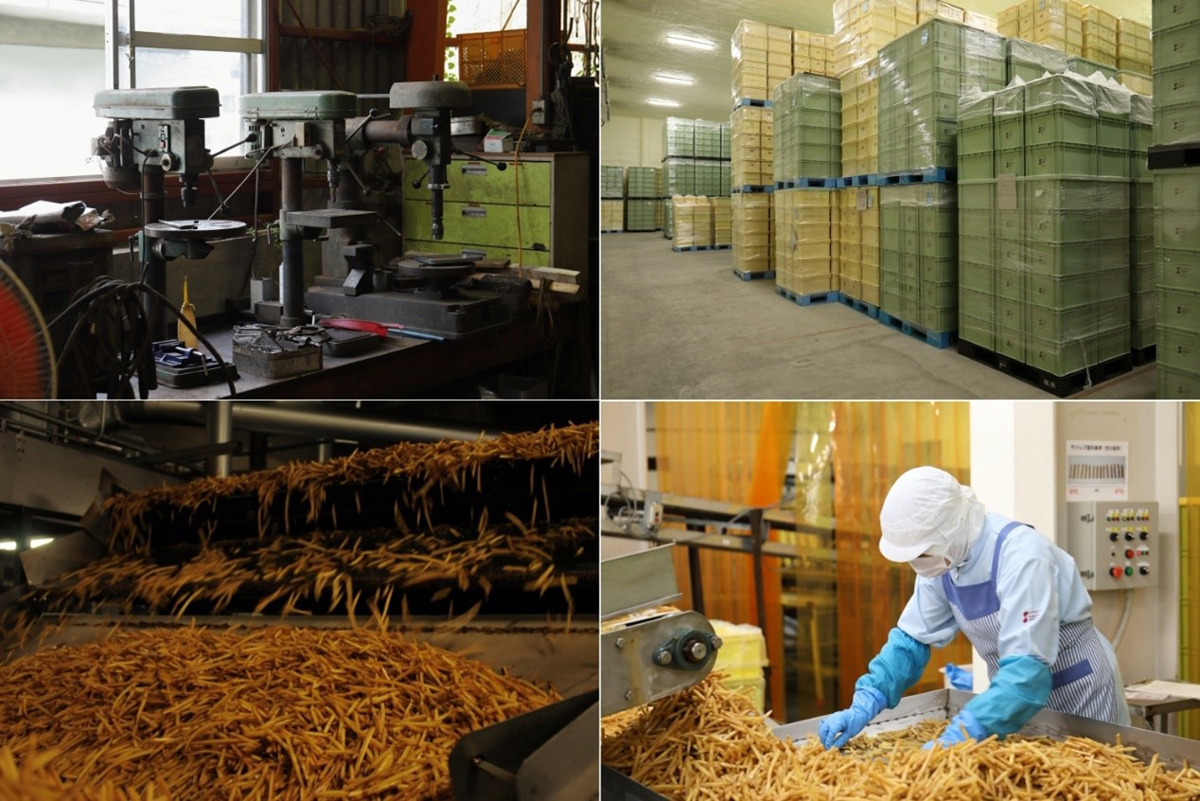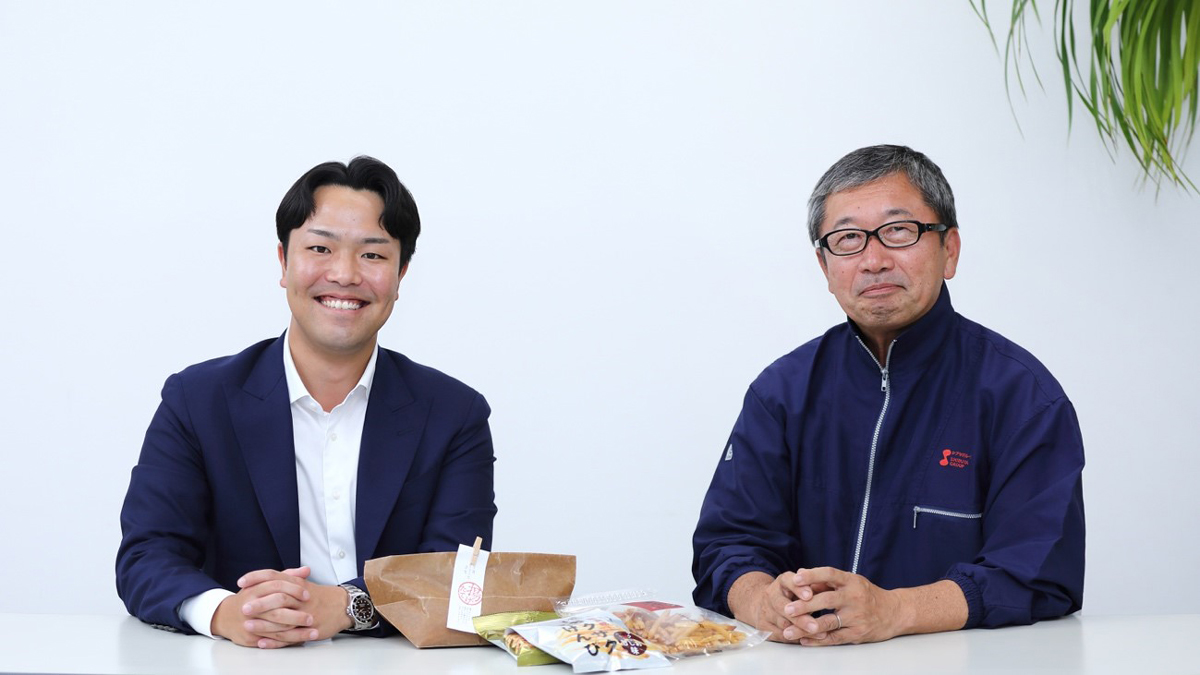
Imo Kenpi, a traditional Japanese delicacy resembling french fries but with a unique twist of being fried sweet potatoes coated in sugar, traces its origins back to Kochi Prefecture in Japan.
Shibuya Foods, Co., Ltd., is a confectionary manufacturer from Kochi Prefecture, and holds a 50% market share of these delectable treats. Since its establishment in 1959, Shibuya Foods has been delighting Japanese consumers with its delicious sweet potato snacks while maintaining the spirit of giving back to employees, farmers, customers, and local communities.
ORIX Group is an active supporter of small and medium-sized enterprises (SMEs) like Shibuya Foods. Through a spectrum of services, such as Corporate Pension Services, ORIX aids in expanding and enhancing employee benefit programs. Additionally, ORIX addresses the pressing issue of business succession, particularly relevant in the context of an aging population, in ways that ensure the satisfaction of all parties involved, including business owners, employees, and partners.
Kosuke Ogata, Kochi Area Manager for the ORIX Takamatsu Branch, spoke with Shinichi Shibuya, President of Shibuya Foods about their history and future.
How Shibuya Foods came to be

It leaves no room for deception,” Shinichi Shibuya, President of Shibuya Foods emphasized.
"In 1952, my father, Kinjiro, ventured into the confectionery business, eventually creating a sensation with our signature imo-kenpi," reminisces Shinichi Shibuya. Upon joining the company in 1991, he encountered a challenging scenario. Shibuya Foods, despite its nationwide presence, was struggling financially, burdened by unprofitable ventures like fertilizer plants and tourist farms. As a result, the company was in the red, and on the brink of insolvency. Upon entering the company, one of Shinichi Shibuya's first tasks was to sign various documents as a joint guarantor.
Recognizing that maintaining an overly diversified approach would exacerbate the situation, Shibuya Foods opted for a business reorganization. The primary focus was redirected towards the manufacturing of sweet potato desserts, where the company's core strengths lay. Consequently, Shibuya Foods streamlined its operations, retaining only three core businesses: Shibuya Foods, specializing in imo-kenpi production; Potato Shibuya, responsible for crafting sweet potato cakes, paste, and diced sweet potato (now integrated into Shibuya Foods); and Yagoro Foods, dedicated to sweet potato cultivation and seedling production. These three entities form the foundation of today's Shibuya Group.

crucial decisions regarding frying times and temperatures are entrusted to veteran employees.
At the heart of Shibuya Foods' ethos lies a commitment to its employees. Guided by a management philosophy centered on three key principles: 1. Making employees happy through the work that they do, 2. Making customers happy through the products we offer, and 3. Contributing to the development of local communities. The happiness of employees is the first principle because Shinichi Shibuya believes that “if our employees aren’t working happily and energetically, the sweets they make won’t be delicious”.
The Initiatives that make Shibuya Foods Unique
Shibuya Foods demonstrates a commitment to local community development, exemplified by Yagoro Foods, which engages in soil preparation, cultivation, and the growing of sweet potatoes on company-owned farms. Quality soil is essential for growing delicious sweet potatoes, so they analyze the soil’s mineral content, microorganisms, and fertilizer components, making adjustments to ensure the soil is in optimal condition for growing sweet potatoes. They share research findings and cultivation expertise with farmers to elevate the quality of the sweet potatoes, fostering mutual growth and success within the agricultural community.
Furthermore, Shibuya Foods addresses concerns of climate change with innovative strategies. In response to its effect on crop cultivation, farming operations were initiated in Hokkaido in 2019, utilizing geothermal heat from hot springs to cultivate seeds. In the future, the cost of sweet potatoes will inevitably rise due to poor harvests caused by climate change and increased growing costs owing to the soaring price of fertilizer. To optimize limited resources, efforts are underway to develop products that repurpose food waste. One such example is our "tsubu-kenpi," crafted by grinding up and compacting short pieces of imo-kenpi. This type of product development will become increasingly crucial in the future for minimizing food loss.
Mapping Out Shibuya Foods' Next Chapter

Shinichi Shibuya, president of Shibuya Foods (right)
“In our vision for the future, we aim to increase directly operated stores to bring the taste of freshly fried imo-kenpi to people across Japan” expressed Shinichi Shibuya. However, achieving this goal necessitates the expertise of veteran employees, therefore Shibuya Foods will intensify its focus on human resource development. The ultimate goal is to create the ideal imo-kenpi, one that people can’t help but say, "Once you eat one, you just can’t stop."
Kosuke Ogata, Kochi Area Manager for ORIX, attests to the allure of freshly fried imo-kenpi: "The fragrance is out of this world, and during the interview, time after time, I found myself reaching out for another."
ORIX Group, recognizing the potential in Shibuya Foods' endeavors, is actively engaged in discussions with the company regarding vehicle and equipment leasing opportunities. Moreover, plans are underway to extend support in various domains, including the expansion and enhancement of employee benefit programs. Ultimately, the shared goal remains clear: to prioritize the happiness of employees in Shibuya Foods' relentless pursuit of the perfect imo-kenpi!
